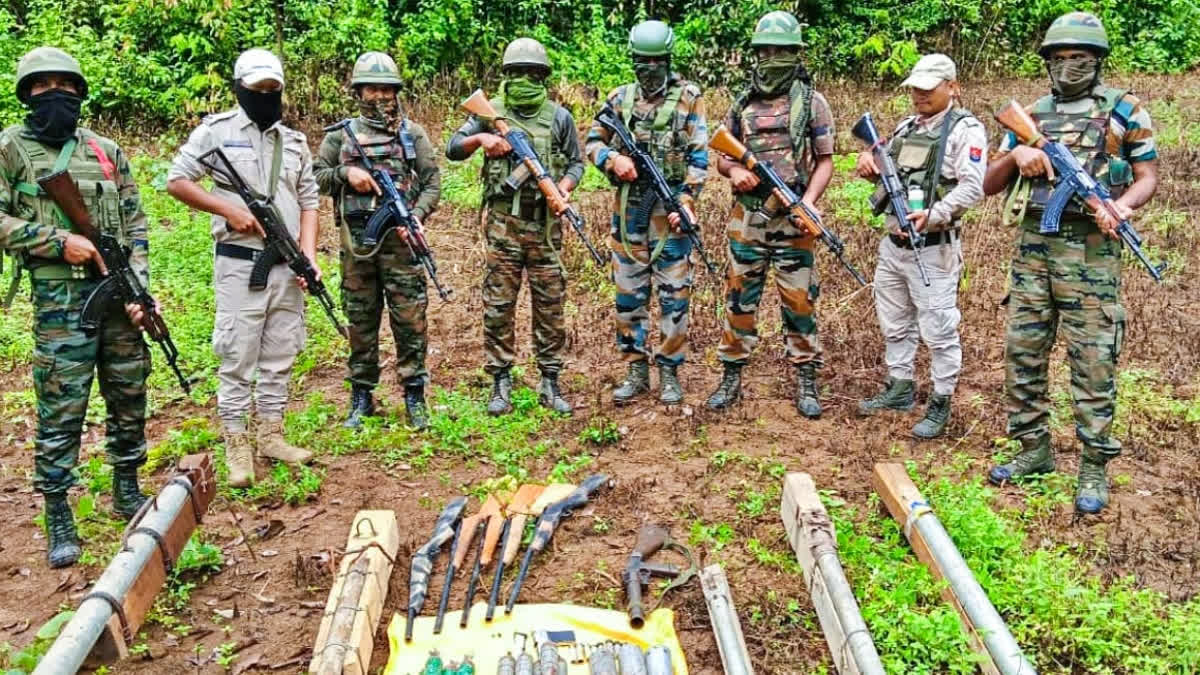New Delhi: The Ministry of Home Affairs has reimposed the Armed Forces (Special Powers) Act in six police station areas in Manipur, including the violence-hit Jiribam district.
Under AFSPA, an area is declared as "disturbed" for the convenience of security forces to operate. In a notification, the Union Home Ministry said the decision was taken given the continuous volatile situation there due to the ongoing ethnic violence.
The police station areas where AFSPA has been reimposed are Sekmai and Lamsang in Imphal West district, Lamlai in Imphal East district, Jiribam in Jiribam district, Leimakhong in Kangpokpi and Moirang in Bishnupur.
The fresh order came after the Manipur government imposed AFSPA in the entire state on October 1, barring 19 police station areas that include these six.
The police stations excluded from the Manipur government's October 1 order of AFSPA imposition were Imphal, Lamphal, City, Singjamei, Sekmai, Lamsang, Patsoi, Wangoi, Porompat, Heingang, Lamlai, Irilbung, Leimakhong, Thoubal, Bishnupur, Nambol, Moirang, Kakching, Jiribam.
Eleven suspected militants were killed in a fierce gunfight with security forces on Monday after insurgents in camouflage uniforms and armed with sophisticated weapons fired indiscriminately at a police station and an adjacent CRPF camp in Manipur's Jiribam district. A day later, six civilians, including women and children were abducted by armed militants from the same district.
More than 200 people have been killed and thousands rendered homeless in ethnic violence between Imphal Valley-based Meiteis and adjoining hills-based Kuki-Zo groups since May last year.
The ethnically diverse Jiribam, which was largely untouched by the clashes in Imphal Valley and the adjoining hills, witnessed violence after the mutilated body of a farmer was found in a field in June this year.
What are the special powers of armed forces under AFSPA?
An excerpt from the Armed Forces (Special Powers) Act, 1958 reads: Any commissioned officer, warrant officer, non-commissioned officer or any other person of equivalent rank in the armed forces may, in a disturbed area, if he is of opinion that it is necessary so to do for the maintenance of public order, after giving such due warning as he may consider necessary, fire upon or otherwise use force, even to the causing of death, against any person who is acting in contravention of any law or order...
The armed forces personnel, under the Act, can also "arrest, without warrant, any person who has committed a cognizable offence or against whom a reasonable suspicion exists that he has committed or is about to commit a cognizable offence and may use such force as may be necessary to effect the arrest".
They can also "enter and search without warrant any premises to make any such arrest as aforesaid or to recover any person believed to be wrongfully restrained or confined or any property reasonably suspected to be stolen property or any arms, ammunition or explosive substances believed to be unlawfully kept in such premises, and may for that purpose use such force as may be necessary". (Agency inputs)



